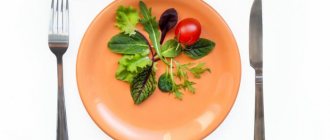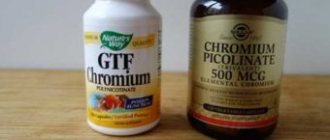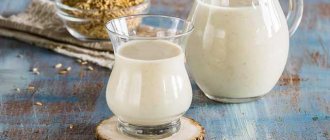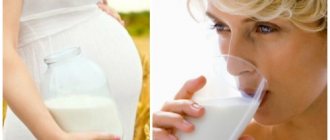Why I decided to give up milk
Since childhood, I have been told about the importance of dairy products for the body: they are necessary for growth, skeletal development, strong bones and teeth. We always had yoghurts, cheeses, milk and much more in the refrigerator. I was a child who didn’t understand how you could eat borscht without sour cream and not wash down your mother’s freshly cooked pies with a warm glass of milk, or how you could refuse sandwiches with cheese. But even ingrained habits can be changed - I experienced this from my own experience.
Today there are fights without rules around milk: from convincing evidence of its irreplaceability to... equally convincing evidence of harm. I will describe my personal experience: how I gave up dairy products, what changes I noticed and why this lifestyle completely suits me today. As you read, remember: this does not mean that it will work in your case as well. But it's definitely worth a try.
How to replace dairy products?
You need to replace dairy products with products that are similar in terms of nutritional value. Dairy products are known to be rich in calcium and protein. The following products also contain them.
Products with calcium:
- sunflower seeds, sesame;
- nuts: almonds, walnuts, Brazil;
- greens: basil, parsley, watercress, dill, arugula;
- White cabbage;
- broccoli;
- sea fish;
- shrimp, anchovies, crabs and oysters;
- beans and peas;
- chicken eggs.
Products with protein:
- lamb, beef;
- turkey, chicken;
- any fish;
- eggs;
- almonds, cashews, pine nuts;
- peanut;
- legumes;
- tofu;
- soy;
- vegetables: Brussels sprouts, mushrooms, zucchini;
- greenery.
If it is difficult for you to give up dairy products altogether, then leave some fermented milk products in your diet: kefir, fermented baked milk and yogurt. Choose foods without sucrose. But such products will still contain sugar - lactose (milk sugar).
Also, don’t forget about plant-based analogues of cow’s milk. In stores we can buy milk:
- soy;
- coconut;
- almond;
- from cashew;
- buckwheat;
- rice, etc.
Of course, such analogues cost several times more than a package of regular milk. But they will help you not to feel deprived and deprived of a familiar product.
It won't go away on its own
At the age of 17, like many people, I started having skin problems. There were rashes not only on the face, but also on the back and chest. I visited many cosmetologists and endocrinologists. I took a million tests, but the doctors just kept saying: “It’s an age thing, it will go away on its own.” Or they prescribed hormonal drugs.
But I wanted to find a reason. One day I met a friend who always suffered from skin imperfections, and I couldn’t believe it: her face was clean and smooth. I started asking what she was doing and what magic drugs she was taking. But it turned out that she simply got rid of dairy in her diet: tests showed lactose intolerance in her case, and perfect skin became a positive bonus of the new lifestyle.
I started reading literature on this topic. I learned that milk usually contains the hormones progesterone and estrogen, which can affect hormonal levels, resulting in rashes, dryness and eczema.
Reasons for refusing milk
Regular consumption of dairy products can lead to the emergence and development of various diseases. They concern not only the gastrointestinal tract, but also other internal organs and the human skeleton.
Possible diseases due to excessive consumption of milk:
- Osteoporosis . Large portions of dairy products wash away essential calcium from the skeleton. Sodium and protein components of milk contribute to the occurrence of metabolic acidosis. This happens because the body, which is highly acidic, begins to consume calcium from the bones;
- Atherosclerosis . Foods that contain large amounts of lactose are rich in complex fats. The human body cannot cope with the processing of these elements, and there is a risk of the formation of cholesterol plaques in the blood vessels;
- The emergence and development of neoplasms . Modern scientists have proven that excessive consumption of milk contributes to the development of cancer cells in the prostate gland.
Cappuccino with coconut
First, I removed milk in its pure form - in my case, this means that I stopped drinking milk in glasses, and added coconut or almond milk to my coffee. Honestly, it wasn’t difficult! I explored all the coffee shops near my home and work that had alternative options, and sometimes I went to visit with my own carton of coconut milk (to make sure I didn’t stray from my chosen path). By the way, pay attention to the composition of plant milk! Sometimes it is better to drink cow's milk than an alternative with sugar and other unnecessary ingredients.
Miracles, but after two months the rashes on my body disappeared, subcutaneous pimples and redness disappeared from my face, but there was still something to work on. I began to feel much better, the signs of bloating went away, and I had more energy.
I no longer perceived the taste of regular milk, and when I tried it by mistake, I felt disgusted.
After getting my hormones tested, I found that almost everything was back to normal. The doctor simply answered my stories about a new way of life: “I told you that everything will get better with age, milk has nothing to do with it.” At that moment I decided that it was time to change doctors.
Expert comment:
Elena Shifrina
nutritionist, healthy lifestyle expert and creator of BioFoodLab
According to American studies, 75% of people on the planet have lactose intolerance - many simply do not notice its manifestations and consider periodic bloating, rashes on the face and swelling to be normal. Regarding antibiotics, everything, of course, depends on the integrity of each individual manufacturer. I know that in Russia they are developing GOST, which will completely ban antibiotics in raw materials and, as a result, in finished dairy products. But for now all this is at the development stage. Factory milk often contains growth hormones, and in quite large quantities. They are designed for the growth of calves and can have a negative impact on the health of an adult, causing him to “grow” in the wrong direction. Choose products not from factories, but from farms, where the living conditions and keeping of animals will at least meet environmental standards.
PEOPLETALK exclusive: what happens if you give up milk? Spoiler: the result will surprise you!
Without gluten, sugar and dairy - healthy lifestyle blogger Sasha (@sashasueva) assures that even with such a motto you can eat tasty and varied. She switched to a “clean” diet a year and a half ago, when she encountered allergies and, as a result, an acne problem. Endless tests showed no results, medicinal cosmetics did not help, and only after giving up milk did improvements appear. Sasha told PEOPLETALK exclusively how to give up milk, how to replace your favorite cheesecakes / curds / yoghurts and why this is even necessary.
Why did you give up milk?
@sashasueva
@sashasueva
@sashasueva
Milk has always seemed to me the safest and healthiest product. I grew up in a village, we had cows and goats, and fresh milk every evening. I have always had clear skin, and I have never encountered allergies. But one fine day my face turned into a plantation of acne, I could not go outside without makeup. First of all, I ran to get tested, but they didn’t show any abnormalities. Through trial and error, and after a long study of information, I decided to review my diet and gave up dairy products. At first it was just an experiment, but the result shocked me. ⠀
After two months, my face cleared up. In addition, I began to feel much better, the signs of bloating went away, I had more energy, and the excess weight went away.
Milk and acne - what's the connection?
View this post on Instagram
Publication from HEALTHY AND TASTY | gluten free (@sashasueva) Feb 5, 2019 at 2:36 PST
Many people have heard about lactose - milk sugar, but few people know about milk protein - casein. Simply put, this is the residue of undigested protein that lingers in the gastrointestinal tract. As a result, the immune system suffers and “leaky gut” syndrome occurs: all bacteria and toxic substances enter the body, blood and lymph. Hence allergies and acne. By the way, casein is also found in fermented milk products. That's why I refused them too.
Where to begin?
To get started, I advise you to watch the lecture “Dr. Weiss on Milk” on YouTube. Believe me, everything will become clear immediately.
Giving up milk does not mean eliminating only drinking milk. It is necessary to remove all products containing milk from the refrigerator. This also applies to fermented milk products. Why? Milk is eliminated from the body in about a month. If you have not consumed milk for two weeks, but suddenly decide to drink coffee with cream, you will have to start all over again.
How to replace milk?
There is no problem with this at all. There is now a huge variety of plant-based milk available in stores. Choose according to your taste. I like almond for every day.
View this post on Instagram
ALMOND MILK? ⠀ Plant milk is something that is always present in my diet. Do I add it to smoothies and coffee, cook porridge with it, and also add it to baked goods? ⠀ Usually there are three types of milk in my diet: ⠀ ? coconut? Rice and walnut milk? almond ⠀ If I buy the first two, then I always prefer to make almonds myself? ⠀ Almonds are a storehouse of healthy minerals and vitamins; they contain a lot of calcium, which is so important for our body. ⠀ Almond milk is very reminiscent of cow milk, neutral in baking, has a lot of healthy fats, and thanks to this, pancakes can be baked absolutely without adding oil? ⠀ Ingredients: ⠀ ? 150 g almonds (SOAK FOR 7-10 HOURS, or better yet overnight) ? 500 ml of water ⠀ It’s very simple to prepare: ⠀ 1. Drain the water from the nuts and rinse them well 2. Put them in a blender and fill them with water 3. If desired, add a sweetener, such as Jerusalem artichoke syrup or dates 4. Take gauze or a clean towel, pour everything out blender into it and squeeze out our milk ☺️ 5. Pour into a bottle ⠀ Done!? ⠀ This milk is stored for 2 days in the refrigerator, but it will evaporate quickly, is it really delicious? ⠀ Be healthy ❤️? #glutenfreelactosefree #glutenfree #panicattacks #lactosefree #almonds #almondmilk #almondmilkrecipe #diet #pp #health #plantmilk #plantfood #veganrecipes #vegan #milk #lactose-free #dairy-free #bgbk #bkbg #sugar-free #allergies #quincke-edema #casein #healthyfood
A post shared by HEALTHY AND TASTY | gluten free (@sashasueva) on Feb 4, 2021 at 12:11pm PST
The only thing is that you always need to pay attention to the composition, there should not be a periodic table - the simpler and clearer, the better. Many people worry about calcium, which we supposedly get from milk. Let me tell you a secret: there is very little of it in milk. For example, there is much more calcium in sesame seeds or nuts than in milk.
An alternative to cottage cheese, which many people love for breakfast, is green buckwheat. The curd made from it is no different in taste from ordinary cottage cheese. On the contrary, it tastes even better. I replace cheese with cashews or other nuts: it’s filling and tasty. Cream – coconut milk. By the way, it can be used to prepare cream for desserts or for main courses to diversify your diet. Yogurt and ice cream can also be easily made from plant milk.
View this post on Instagram
PANCAKES IN 5 MINUTES? ⠀ I think I know what you'll cook for breakfast ☺️ ⠀ These gluten, milk and sugar free pancakes require just a few ingredients and time, and the result is magical? ⠀ Look how porous they are! ⠀ Are we cooking? ⠀ What will we need: ⠀ ? 130 g apples? 65 g flour (I used White Bread mix, rice would also work great) ? 1 egg? 1 tbsp Jerusalem artichoke syrup (you can do it without sweetener at all if you have sweet apples) ⠀ Cooking! ⠀ 1. Puree the apples with a blender 2. Add egg, flour and sweetener 3. Mix everything 4. Bake on both sides until golden brown? ⠀ Is a wonderful, tasty, hearty and healthy breakfast ready? ⠀ Bon appetit? ⠀ #gluten #gluten-free #dairy-free #gluten-free pancakes #pp #pprecipes #recipes #glutenfree #gluten #singluten #lactose #bgbk #casein #casein-free #celiac disease #allergies
A post shared by HEALTHY AND TASTY | gluten free (@sashasueva) on Feb 10, 2021 at 1:31pm PST
Now I don't drink milk at all. This is my firm position. I will never take a chocolate bar with milk or coffee with cream to treat myself once every six months. A minute of “pleasure” is not worth putting this product into my body. I learned how to replace everything and am happy with the results.
Read also
How does milk affect the skin?
There is a lot of Camembert
In principle, everything suited me. Small imperfections on the skin could be hidden with foundation, and if you regularly visited a cosmetologist, you could forget about them.
I continued to live without milk, but I didn’t think about completely giving up fermented milk products. I could afford to eat cottage cheese with fruit for breakfast, and drink a glass of kefir in the evening. This went on for two years, the end point being my trip to France. Honestly, I couldn’t imagine traveling to this country without Camembert and Brie cheeses, fresh croissants with butter in the morning, homemade yoghurts... Of course, I tried to eat all this every day in order to, so to speak, “stock up” until the next trip. I repeat, I still didn’t drink milk. However, two weeks later, when I returned home, I discovered that the rashes on my face had intensified, severe swelling appeared, and I felt a constant heaviness in my stomach.
Somehow, by chance, on Facebook, I came across a lecture by Dr. Walter Weiss on milk. The video is only 1.5 hours long, but in it he systematically talks about the impact of dairy products on humans. For example, he speaks of man as the only living creature that continues to consume dairy products throughout his life, while all other mammals only in childhood.
Or he says that milk contains a type of sugar called galactose, which is absorbed only in the child’s body. In an adult, it is deposited in the joints, under the skin, on the lens of the eye and in the reproductive system.
The next day I came across the Avocadosasha blog, which tells how to eat smart and balanced for health and maintaining youth. There I read about casein, which is formed during the curdling of milk and is found in all dairy products, and has properties like a narcotic substance. It not only forms an addiction to milk, but also affects various allergic reactions, swelling and contributes to the development of diabetes. At that moment, I realized that this was a sign, and it was time for me to say “goodbye” not only to dairy, but also to fermented milk products.
Having updated my grocery cart, I mercilessly threw out all the yoghurts, cottage cheese and kefir from my refrigerator and started a new life.
Withdrawal began on the third day: I woke up with the thought that I urgently needed cheesecakes. I tried to distract myself, but all attempts were unsuccessful. Suddenly I found myself at the store checkout with cheesecakes and sour cream in my hands. Then it’s like a fog.
But I still decided not to give up, just to give up more smoothly. I allowed myself one dairy product a day, but only if I really wanted it. It could be a cheese sandwich, cottage cheese casserole or yogurt. Thus, after three weeks I said goodbye to dairy addiction, and the look at my favorite cheesecakes was indifferent.
Why people refuse milk - 4 main reasons
There are many reasons why people decide to stop consuming milk and dairy products. The most common are:
- Lactase deficiency. This condition is accompanied by intolerance to the lactose contained in milk due to a deficiency of the enzyme lactase in the body. The syndrome is widespread throughout the world; in some regions, up to 100% of the population cannot consume milk. For such people, the abuse of dairy products is fraught with the development of many side effects: nausea, diarrhea, abdominal pain, dehydration, etc.
- Allergy. Allergic reactions most often occur to milk protein – casein. According to statistics, about 1-2% of people cannot drink milk for this reason. Allergopathology always manifests itself individually and can have any degree of severity: from banal skin itching or urticaria to anaphylactic shock, which can take life within a few seconds.
- Ideological views. For example, some vegetarians refuse not only animal meat, but also dairy products. Recently, the theory of “evolutionary mismatch” has become widespread. According to these ideas, the secretion product of the mammary glands is necessary for a person only in the first years (in order to obtain valuable nutrients). Consumption of dairy products at an older age is considered “unnatural.”
- Obesity. Certain dairy products (cheese, sour cream, cottage cheese) have extremely high energy value, as they contain a lot of fat. Nutritionists strongly advise limiting or completely eliminating this group of foods from the diet.
Thus, there are several main reasons to exclude milk and dairy products from your diet. Some reasons involve health risks.
How my life changed after giving up dairy
What changes have I noticed in myself? Firstly, all the skin rashes went away. The face became smooth and without redness.
Secondly, I began to feel much better and stopped getting sick often. The skin on the body smoothed out, the orange peel disappeared, but the weight remained the same. The swelling also left me.
I was pleased to realize that I could look at cheese with a cool gaze or calmly walk past the cheesecakes in Coffeemania.
At the moment I don't eat dairy products at all. An exception might be Italian pasta in a creamy sauce or a piece of Napaloen cake, but this happens a couple of times a year, and I immediately notice all the delights of the side effects on myself.
With my story, I am not encouraging anyone to give up dairy products forever. Perhaps this lifestyle is not suitable for some, but for the sake of experimentation, I would advise you to give up for at least a month and look at the results.
Expert comment:
Elena Molokova
endocrinologist, anti-age specialist at the ASTRAMED innovation laboratory
A complete rejection of regular cow's milk has nothing to do with a healthy lifestyle. Cow's milk contains about 50 useful microelements and more than 20 vitamins that are necessary for the normal functioning of the body. The main ones are calcium, which is responsible for the health of bones and teeth, and protein, a building material for muscles and a source of energy. In addition, milk is rich in potassium, which strengthens blood vessels, normalizes blood pressure and heart rate, vitamins A and B2, which improve skin condition, vitamin D, which improves immunity and is involved in the production of the hormone of happiness, as well as useful magnesium, phosphorus, potassium and chlorine. Regular consumption of cow's milk increases immunity and improves memory, so if you have no contraindications, you should not deny yourself cow's milk. It’s another matter if you notice a direct connection between your general condition and milk intake. Then you need to take a blood test for lactose intolerance and a food panel.
What if I tolerate dairy products perfectly?
This is amazing. As with any animal product, the key here is quality and moderate consumption. And always use full-fat dairy products, as low-fat versions contain fewer nutrients but more sugars. Also, read brand labels carefully. The order of priority is as follows:
Raw dairy products from pastured/grass-fed cows are best
Good - pasteurized, non-homogenized whole milk from pasture-raised/grass-fed cows, or (less preferably) pasteurized, homogenized whole milk from pasture-raised/grass-fed cows.
Acceptable - organic milk. Requirements typically include pasture-raised/grass-fed cows or feeding grains that are free of GMOs, hormones, and antibiotics. But recent studies show that some large farms that supply their products to supermarkets keep their cattle in stalls and feed them with compound feed, which significantly reduces the “natural” value of milk.
The worst thing is ultra-pasteurized low-fat milk.
And since natural, high-quality dairy products are naturally more expensive, try doing the following.
Change your attitude towards her. Look at dairy products as a treat or a holiday dish.
Use it wisely. If you're lucky enough to find thick, rich milk from grass-fed cows, turn it into yogurt or kefir.
Choose the most useful. Invest in grass-fed butter or ghee, which are concentrated sources of fat-soluble vitamins and healthy fatty acids. And butter enriched with bifidobacteria is a fairy tale!
Give it up. If you can't afford high quality dairy products, use organic alternatives like nut or seed butters.










